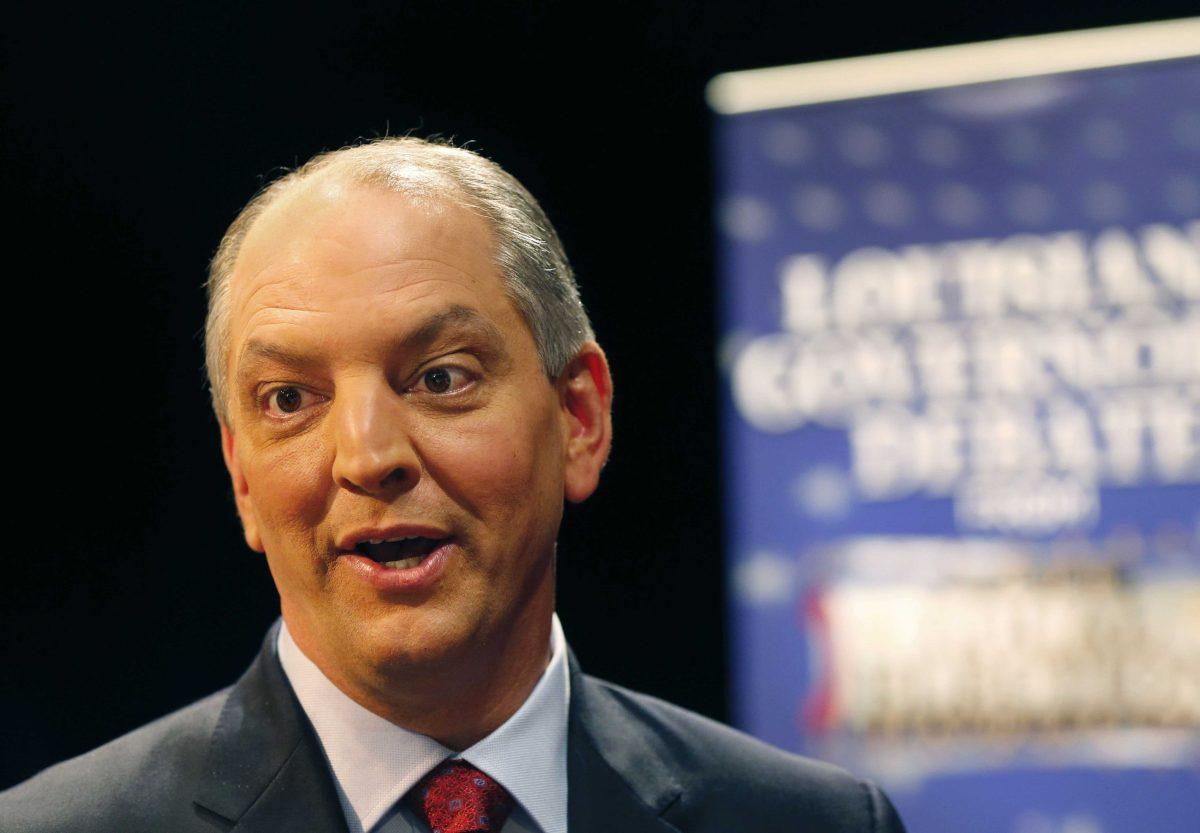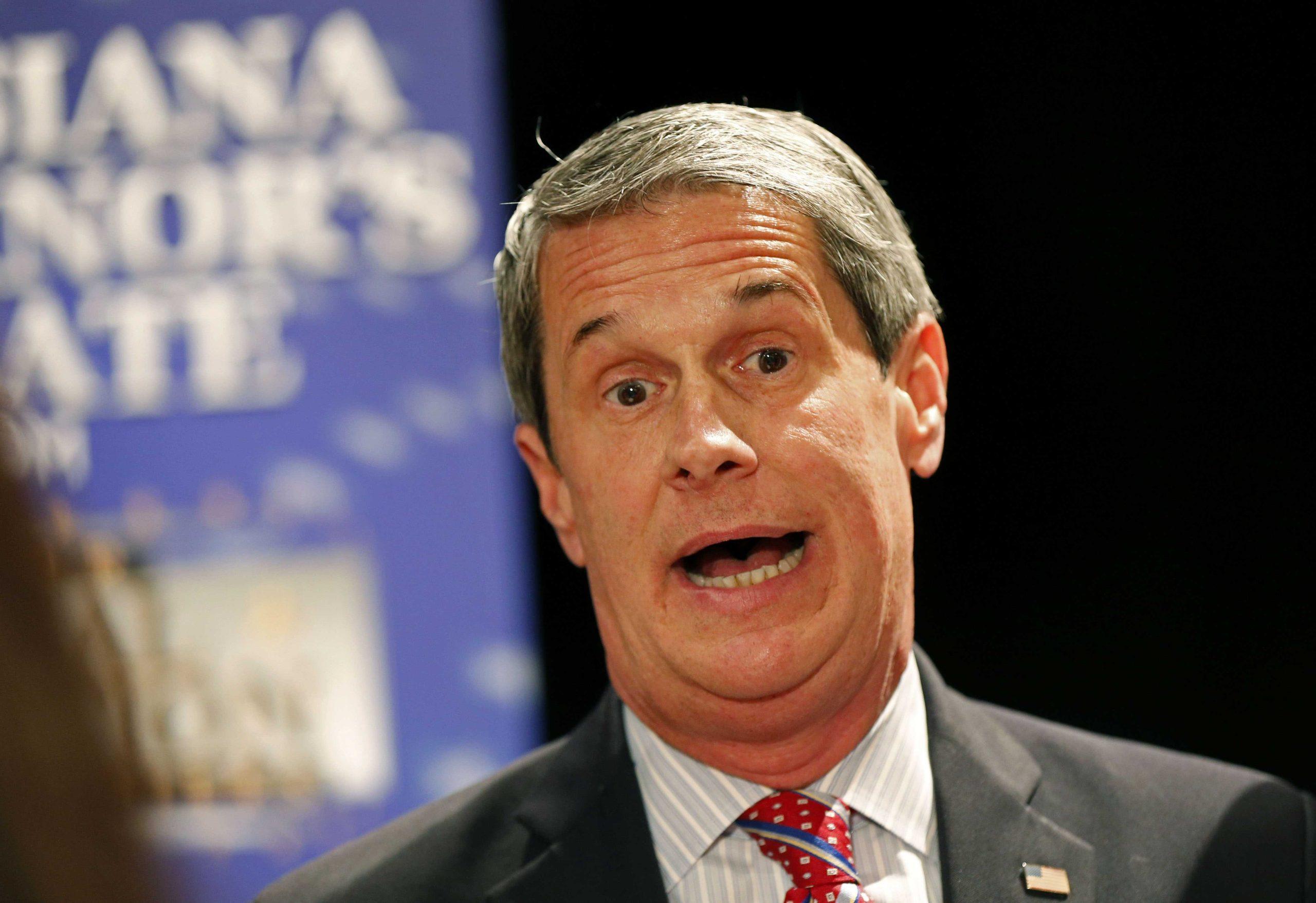Louisiana’s coast could be gone for good.
I’m not exaggerating when I say Louisiana is falling into the Gulf of Mexico. A football field every hour, 16 square miles per year, according to The Lens and ProPublica.
So why hasn’t this issue been in every single governor’s debate?
The debates so far have covered many important issues, from higher education and the budget to Kim Davis.
I mean what would you do as governor if Kim Davis lived in Louisiana and was denying LGBT couples the same access to government services as straight couples?
No, seriously. The WDSU debate discussed Rowan County clerk Kim Davis from Kentucky at their debate. This issue is a molehill compared to the mountainous issue of Louisiana’s vanishing coast.
Coastal land loss threatens our way of life. Our culture and our economy over the next 50 years are on the ballot, yet both candidates are silent.
According to the Tulane Institute on Water Resources Law and Policy, our state is short at least $71 billion on our 50-year coastal master plan.
The state has $20.6 billion in funding over the next 50 years in coastal restoration funding coming from a variety of federal sources. One of those includes offshore oil and gas revenues starting in 2017.
When Louisiana had U.S. Sen. Mary Landrieu in office, she fought and maintained that this funding was a priority. Now that she is gone, President Barack Obama threatened to take these essential dollars away.
Our state’s Congressional delegation must fight to keep these revenues and ensure that the $6.8 billion in fines from the BP Deepwater Horizon oil disaster are spent on restoring the coast.
The 2012 Coastal Master Plan, which will be updated in 2017, isn’t even the “end all be all” to solving this issue. It’s a compromise document that punts many of the hard choices we must make as a state in order to save our coast.
A 2014 study from the Tulane Institute on Water Resources Law and Policy found even if the 50-year, $50 billion master plan works many residents will be forced out of their homes by rising waters caused by rising sea levels and sinking land.
Yet federal and state governments haven’t even started to study how to help those who will be displaced, who are “largely minority, poor and rural” and in need of government assistance to move, according to a 2014 study on community displacement by the Tulane Institute on Water Resources Law and Policy.
Both candidates are eager to worship at the altar of big oil, who have inflicted so much damage on our coast to reap massive profits.
“The oil and gas industry is the lifeblood of Louisiana’s economy,” says the narrator of state Rep. John Bel Edwards’ latest ad.
The land where lifeblood of our economy sits could vanish if we don’t save it. According to The Lens, the land being swallowed by the Gulf is home to half the country’s oil refineries. This region provides the nation with 30 percent of its total oil and gas supply.
Our economy and our future depend on the candidates’ plans to save our coast. Yet no televised debate in the primary or in the runoff has prominently featured the issue most crucial to our state’s survival.
To save the coast, our next governor must properly fund the Coastal Master Plan and go even further.
Time is running out, and we need a leader who is bold enough to address our coastal land loss crisis. If you truly love Louisiana — love our food, our culture, our way of life as both your campaigns would have us believe — then save our coast and our state’s livelihood.
Michael Beyer is a political science senior from New Orleans. You can reach him on Twitter @michbeyer.
Opinion: Gubernatorial debates should discuss coastal issues
November 16, 2015
Louisiana Democratic gubernatorial candidate John Bel Edwards speaks to reporters after his debate against challenger Sen. David Vitter, R-La., in Baton Rouge, La., Monday, Nov. 16, 2015. (AP Photo/Gerald Herbert)
More to Discover












